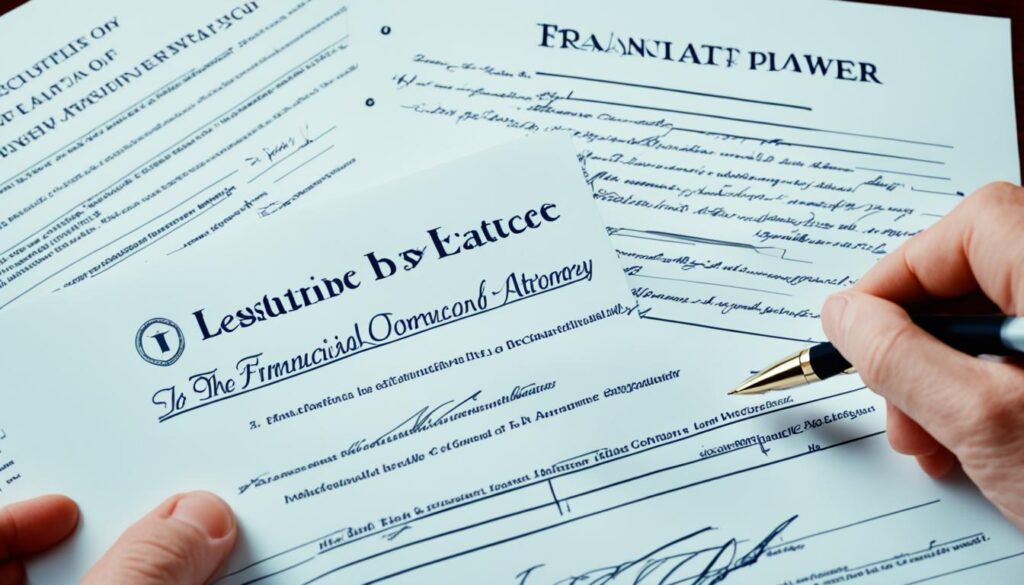Estate planning is a vital process for couples in the United States, regardless of their financial status. It involves creating legal documents to ensure that assets are distributed according to their wishes and loved ones are protected. By taking the time to establish an effective estate plan, couples can secure their financial future and provide for their families, even after they are gone.
When it comes to estate planning for couples, there are several important considerations and strategies to keep in mind. From establishing wills and trusts to designating powers of attorney and beneficiaries, each element plays a crucial role in safeguarding assets and ensuring a seamless transfer of wealth. Additionally, working with an experienced estate planning attorney can provide couples with expert guidance and personalized solutions to meet their unique needs.
In this article, we will explore the essential components of estate planning for couples in the United States. We will discuss the importance of wills and trusts, the role of powers of attorney, the significance of beneficiary designations, and the necessity of regularly reviewing and updating the estate plan. With a comprehensive understanding of these key aspects, couples can make informed decisions and navigate the complexities of estate planning effectively.
Key Takeaways:
- Estate planning is essential for couples to safeguard their assets and protect their loved ones.
- Crucial documents to include in an estate plan for couples are wills/trusts, powers of attorney, and beneficiary designations.
- Regularly reviewing and updating the estate plan is necessary to accommodate any significant life events.
- Consulting with an estate planning attorney can provide couples with expert guidance and personalized solutions.
- Estate planning allows couples to secure their financial future and have peace of mind knowing that their wishes will be honored.
The Importance of Wills and Trusts in Estate Planning for Couples
When it comes to estate planning for couples, wills and trusts play a crucial role in ensuring that their assets are distributed according to their wishes. Whether you are married or in a committed relationship, having a well-crafted will or trust is essential for effective estate planning.
A will allows you to specify how your assets, such as property, investments, and personal belongings, should be distributed after your death. It provides clear instructions and ensures that your wishes are followed. In addition to asset distribution, a will also enables you to name a guardian for any minor children, ensuring their well-being and care. It’s important to work with an estate planning attorney to create a legally valid will that accurately reflects your intentions and complies with the legal requirements of your state.
Alternatively, a trust is another powerful tool for estate planning. A trust allows you to transfer your assets to a third party, known as a trustee, who will manage and distribute those assets to your beneficiaries according to your instructions. Trusts can provide valuable benefits such as avoiding probate, maintaining privacy, and minimizing estate taxes. By setting up a trust, you have greater control over how your assets are handled, both during your lifetime and after your death.
One advantage of incorporating both wills and trusts in your estate plan is that they work harmoniously together. While a will addresses assets that are subject to probate, such as individually owned property, a trust primarily deals with assets that have been transferred into it during your lifetime. A comprehensive estate plan should include both a will and a trust to cover all aspects of asset distribution and ensure your wishes are carried out.
The Benefits of Having a Trust
Having a trust in place can provide added protection and flexibility in your estate plan. It allows you to control how your assets are managed and distributed, even after your death. Moreover, by avoiding probate, a trust can save your loved ones time, money, and the stress associated with the probate process.
Another essential aspect of wills and trusts for couples is ensuring that your documents are valid and up to date. Over time, your circumstances may change, such as the birth of children, acquiring new assets, or changes in relationships. Regularly reviewing and updating your will and trust is crucial to ensure they reflect your current wishes and circumstances.
To establish an effective estate plan, it is essential to work with an experienced estate planning attorney who specializes in wills and trusts. They can guide you through the process, address your unique needs and goals, and ensure that your estate plan meets all legal requirements.
The Role of Powers of Attorney in Estate Planning for Couples
In estate planning for couples, powers of attorney play a crucial role in ensuring that financial and healthcare decisions are made in accordance with their wishes. Two important types of powers of attorney are the durable power of attorney and the healthcare power of attorney.
Durable Power of Attorney
A durable power of attorney allows couples to authorize someone to act on their behalf in financial and legal matters if they become incapacitated. This person, known as the attorney-in-fact or agent, will have the authority to manage the couple’s assets, pay bills, and make important financial decisions.
It is important to choose someone trustworthy and responsible as the attorney-in-fact, as they will have considerable power over the couple’s financial affairs. Couples should clearly communicate their wishes to the designated individual to ensure that their assets are managed in accordance with their preferences.
It is recommended to review and update the durable power of attorney periodically to ensure that it reflects the couple’s current wishes and circumstances.
Healthcare Power of Attorney
A healthcare power of attorney allows couples to designate a trusted individual to make medical decisions on their behalf if they are unable to do so. This person, known as the healthcare agent or proxy, will act as an advocate and ensure that the couple’s healthcare preferences are respected.
When choosing a healthcare agent, couples should consider someone who understands their values, beliefs, and treatment preferences. It is crucial to have open and honest conversations with the designated individual to clearly communicate healthcare wishes and expectations.
It is advisable to review and update the healthcare power of attorney regularly, especially if there are changes in the couple’s medical conditions or treatment preferences.
Couples can also consider establishing reciprocal powers of attorney, granting each other the authority to act on their behalf if needed. This reciprocal arrangement can provide peace of mind and ensure that both partners have their interests protected.

Understanding Beneficiary Designations in Estate Planning for Couples
When it comes to estate planning for couples, beneficiary designations play a crucial role in ensuring that your assets are distributed according to your wishes. Many financial accounts, such as retirement accounts and life insurance policies, allow individuals to name beneficiaries. It is important to understand the importance of beneficiary designations and how they can impact your estate plan.
Beneficiary designations allow you to specify who will receive your assets upon your death. By naming beneficiaries, you can bypass the probate process and ensure a smooth transfer of assets to your loved ones. This can save both time and money for your beneficiaries, as probate can be a lengthy and costly process.
One important aspect of beneficiary designations is the ability to update them regularly. Life circumstances change, and it’s essential to review and update your beneficiary designations to reflect your current wishes. Failing to name a beneficiary or keeping outdated information can lead to unintended distributions or even court intervention.
Additionally, it is advisable for couples to consider naming contingent beneficiaries. Contingent beneficiaries are backup beneficiaries who inherit the assets if the primary beneficiary predeceases the account holder. This ensures that your assets go to the intended individuals or organizations, even if your primary beneficiaries are unable to receive them.
Another crucial factor to consider is the mental competency and age of your named beneficiaries. It’s important to ensure that the individuals you name as beneficiaries are mentally competent and over the age of 21. If a beneficiary is a minor or lacks the mental capacity to manage the inherited assets, it can lead to complications and require court supervision.
To provide a visual representation of the importance of beneficiary designations, here is some relevant data:
| Percentage of Americans with Updated Beneficiary Designations | Percentage of Americans without Beneficiary Designations |
|---|---|
| 60% | 40% |
As the data illustrates, a significant percentage of Americans do not have updated beneficiary designations. This highlights the need for couples to prioritize beneficiary designations and regularly review and update them to protect their assets and loved ones.
Overall, understanding beneficiary designations and their importance is essential for couples engaged in estate planning. By effectively utilizing beneficiary designations, couples can ensure that their assets are distributed in accordance with their wishes, minimize the probate process, and provide for their loved ones’ financial well-being.

Conclusion
Estate planning is a crucial and ongoing process for couples to safeguard their assets, protect their loved ones, and ensure their final wishes are honored. It is essential for couples to regularly revisit and update their estate plan to reflect any changes in their personal circumstances, such as marriage, divorce, or the birth of children. By taking the necessary steps to finalize and maintain an effective estate plan, couples can have peace of mind, knowing that their assets will be properly managed and distributed.
Finishing the estate planning journey involves not only creating wills, trusts, and powers of attorney, but also considering the potential impact of estate and inheritance taxes. Consulting with professionals, such as estate planning attorneys and tax advisors, can provide valuable guidance and ensure that couples navigate these complexities effectively.
Revisiting the estate plan periodically is essential to address any significant life events and changes in financial situations. It is important to ensure that the estate plan aligns with current wishes, maximizes financial benefits, and minimizes potential tax liabilities. By staying proactive and regularly reviewing the estate plan, couples can maintain an up-to-date and comprehensive plan that protects their assets and provides for their loved ones.
FAQ
Why is estate planning important for couples?
Estate planning is important for couples to ensure their assets are distributed according to their wishes and their loved ones are protected. It allows couples to create legal documents and make important decisions regarding their finances, healthcare, and guardianship of minor children.
What are the key documents to include in an estate plan for couples?
The key documents to include in an estate plan for couples are wills/trusts, durable powers of attorney, beneficiary designations, letters of intent, healthcare powers of attorney, and guardianship designations.
Why are wills and trusts important in estate planning for couples?
Wills and trusts allow couples to determine how their assets will be distributed after their death and ensure that their wishes are followed. They also allow couples to name a guardian for their minor children and make other important decisions.
What is the role of powers of attorney in estate planning for couples?
Powers of attorney allow couples to authorize someone to act on their behalf in financial, legal, and healthcare matters if they become incapacitated. These documents ensure that their assets are managed and their bills are paid.
Why are beneficiary designations important in estate planning for couples?
Beneficiary designations are important in estate planning for couples because they allow individuals to name who will receive certain assets, such as retirement accounts and life insurance policies, after their death. Regularly reviewing and updating beneficiary designations is crucial to ensure they reflect one’s current wishes and circumstances.
How often should couples review and update their estate plan?
Couples should regularly review and update their estate plan to ensure it reflects their current wishes and circumstances. Life events such as marriage, divorce, birth of children, and changes in financial situations may necessitate revisions to the plan. Seeking professional advice from estate planning attorneys and tax advisors can also be beneficial.
How can Estate Planning Help with Downsizing for Retirement?
Estate planning can offer valuable tips for downsizing home when preparing for retirement. By crafting a strategic plan, individuals can ensure a smooth transition into a smaller living space without sacrificing their financial stability. Utilizing estate planning tools can help minimize stress and streamline the downsizing process.
How Can Estate Planning Help Couples Navigate Separate Finances for Peace of Mind?
Estate planning can provide valuable guidance for navigating separate finances for couples. Creating wills, trusts, and powers of attorney can ensure that each partner’s assets are protected and distributed according to their wishes. This can bring peace of mind to both partners and help avoid potential conflicts in the future.

